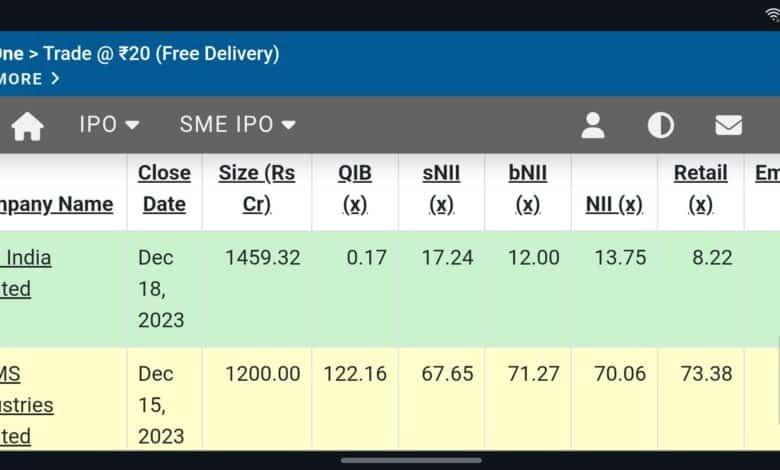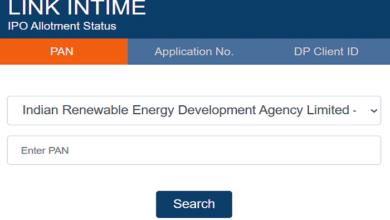What are the Chances of Getting IPO Allotment: Insider Tips Revealed

Getting an IPO allotment can be exciting. But, what are your chances?
Let’s break it down. Investing in Initial Public Offerings (IPOs) has become very popular. Everyone wants a piece of the new and promising companies. But not all who apply for an IPO get shares. Understanding the chances of getting an IPO allotment is important.
It helps manage expectations and make informed decisions. Various factors influence these chances. Demand, investor category, and allocation policies all play a role. Knowing these can help you better navigate the IPO world. In this blog, we will explore these factors. This will give you a clearer picture of your chances. Let’s dive in and understand what impacts IPO allotment.
Introduction To Ipo Allotment
Investing in Initial Public Offerings (IPOs) can be thrilling. The process involves purchasing shares of a company before it gets listed on the stock market. Many investors find the IPO phase exciting due to its potential for high returns. But obtaining shares during an IPO isn’t guaranteed. The IPO allotment process determines who gets the shares and who does not.
Ipo Basics
Initial Public Offerings allow companies to raise capital. They do this by offering shares to the public for the first time. Investors can buy these shares, hoping their value will increase. Companies use IPOs to fund growth, reduce debt, or improve visibility.
During the IPO, a company works with investment banks. They set the price and number of shares available. Investors then apply for shares, hoping to get an allotment.
Importance Of Allotment
Getting an IPO allotment is crucial for investors. It can lead to significant profits if the company’s shares perform well. The demand for shares often exceeds supply, making it a competitive process. Investors place bids, and the allotment process decides who gets the shares.
Several factors influence IPO allotment chances. These include the number of shares available, investor demand, and the bidding price. Understanding these factors can help improve the chances of getting an allotment.

Credit: www.youtube.com
Factors Affecting Ipo Allotment
Understanding the factors affecting IPO allotment can help investors. These factors determine their chances of receiving shares. Let’s explore two main aspects: demand and supply, and the difference between retail and institutional investors.
Demand And Supply
Demand and supply play a crucial role in IPO allotment. High demand means more investors want shares. Limited supply means fewer shares available. When demand exceeds supply, not all investors get shares. Companies often use a lottery system. This ensures a fair distribution among applicants.
Retail Vs. Institutional Investors
IPO allotment also depends on the type of investor. Retail investors are individual investors. Institutional investors include mutual funds, banks, and other large entities. Institutional investors often have more influence. They receive a larger portion of shares. Retail investors typically receive a smaller portion. This creates a difference in allotment chances.
Application Strategies
Understanding the right application strategies can significantly improve your chances of getting an IPO allotment. There are different ways to approach your IPO applications. Below are some strategies that can help you make informed decisions and boost your chances.
Single Vs. Multiple Applications
Many investors wonder if they should apply for an IPO through a single application or multiple applications. Each method has its pros and cons.
- Single Application: A single application is straightforward and easy to manage. This method reduces the risk of errors and ensures compliance with guidelines. However, your chances of getting allotment might be lower due to high competition.
- Multiple Applications: Submitting multiple applications using different accounts can spread your risk. It increases your chances but requires more effort and careful management to avoid disqualification.
Choose the method that aligns with your resources and risk appetite. Always ensure that multiple applications are within the rules set by the IPO issuer.
Optimal Application Size
The size of your application plays a crucial role in IPO allotment. Applying for the right number of shares can improve your chances of success.
| Application Size | Pros | Cons |
|---|---|---|
| Minimum Lot Size | Lower investment, higher chance of allotment | Limited potential gains |
| Multiple Lots | Higher potential gains | Higher investment, lower chance of allotment |
Applying for the minimum lot size is often recommended. It increases the probability of getting an allotment. This strategy works well especially when the IPO is oversubscribed.
For those with higher risk tolerance, applying for multiple lots can be beneficial. It offers higher potential returns but comes with a greater investment risk.
Ultimately, your application size should reflect your financial capacity and risk tolerance. Balanced decisions lead to better investment outcomes.
Role Of Brokers And Banks
The role of brokers and banks in IPO allotment is significant. They act as intermediaries between investors and the issuing company. Their services can influence your chances of getting an IPO allotment. Both brokers and banks offer various services that can make the process smoother and more efficient. Understanding these roles can help you navigate the IPO market better.
Broker Services
Brokers provide crucial services to investors during an IPO. They assist in filling out application forms. They also provide insights into which IPOs to apply for. Experienced brokers can guide you on increasing your allotment chances. They offer research reports and recommendations. These insights help in making informed decisions. Brokers also offer online platforms for easy application submissions.
Banking Channels
Banks play a vital role in the IPO process. They provide ASBA (Application Supported by Blocked Amount) services. This service ensures that your money stays in your account until the shares are allotted. It also reduces the risk of funds being misused. Some banks offer faster processing times for IPO applications. Using a reliable bank can enhance your chances of getting an allotment. They also provide alerts and updates on IPO statuses. This keeps you informed throughout the process.
Ipo Grading And Ratings
IPO Grading and Ratings play a crucial role in an investor’s decision-making process. These ratings provide insights into the quality and potential of an IPO. Higher ratings often indicate better fundamentals and less risk. Understanding these ratings can help investors make informed decisions. They also impact the chances of getting an allotment. Let’s dive deeper into how IPO grading and ratings affect your chances.
Understanding Ratings
IPO ratings are given by credit rating agencies. These agencies assess the company’s financial health, business model, and growth potential. They assign a grade based on their evaluation. The grades range from 1 to 5. A rating of 5 indicates strong fundamentals. A rating of 1 suggests higher risk.
These ratings help investors assess the company’s credibility. A higher rating often attracts more investors. This increased interest can influence the allotment process. Ratings are essential in filtering out weaker IPOs. Investors prefer higher-rated IPOs for better returns and lower risks.
Impact On Allotment
IPO allotment is influenced by demand and supply. High-rated IPOs often see more demand. This increased demand can reduce the chances of getting an allotment. In such cases, shares are allotted through a lottery system. Investors may face stiff competition.
Low-rated IPOs might have less demand. This lower demand can improve the chances of getting an allotment. However, the risk is higher with low-rated IPOs. Investors must weigh the potential returns against the risks. Ratings help in making this decision.
In conclusion, understanding IPO grading and ratings is crucial. It helps in making informed investment decisions. It also impacts the chances of getting an allotment.
Using Technology For Better Chances
Using technology can increase your chances of getting an IPO allotment. With many tools and platforms available, the process becomes easier. Technology helps automate and streamline applications, making it less stressful.
Online Platforms
Online platforms are user-friendly. They guide you through the IPO application process. These platforms provide detailed information about upcoming IPOs. You can quickly decide which IPOs interest you. Many platforms also offer tips and strategies. This can improve your chances of getting an allotment.
Automated Applications
Automated applications save time. They ensure you don’t miss deadlines. Automation reduces human errors. This increases your chances of getting an allotment. Many brokers offer this service. They submit your application on your behalf. This makes the process seamless.
Common Mistakes To Avoid
Applying for an IPO can be an exciting opportunity. Yet, many investors make mistakes that reduce their chances of getting an allotment. Knowing what to avoid can make a big difference. Below are common mistakes to avoid when applying for an IPO.
Incorrect Details
Many applicants enter incorrect personal details. This can lead to rejection. Ensure your name, PAN number, and bank details are accurate. Double-check your application before submitting. Even a small typo can cause issues. Accurate details are crucial for a successful application.
Last-minute Applications
Applying at the last minute is risky. Many investors wait until the final day. This can lead to technical problems. Servers may become overloaded. You might face internet issues. Submit your application early to avoid such problems. Early applications can also show your interest.
Insider Tips For Success
Securing an IPO allotment can be tricky. Many investors are vying for limited shares. Insider tips can make a difference in increasing your chances. This section will guide you through effective strategies.
Early Planning
Start preparing early to boost your chances. Research upcoming IPOs and understand the company’s background. Keep an eye on the market trends and analyst opinions. This will help you make informed decisions.
Creating a checklist can help. Here’s an example:
- Research the company
- Analyze market trends
- Check IPO dates
- Monitor analyst opinions
Early planning gives you a head start. It ensures you do not miss out on important opportunities.
Diversified Applications
Applying for multiple IPOs increases your chances. Do not put all your hopes in one. Spread your investments across various IPOs. This strategy can improve your odds of getting an allotment.
Consider the following table to diversify your applications:
| IPO Name | Application Date | Investment Amount |
|---|---|---|
| Company A | DD-MM-YYYY | $500 |
| Company B | DD-MM-YYYY | $300 |
| Company C | DD-MM-YYYY | $200 |
By diversifying, you lower the risk and increase chances. More applications can lead to higher success rates.
Stay updated and follow these tips. Your chances of getting an IPO allotment will improve.
Post-allotment Actions
After applying for an IPO, the waiting period for allotment can be nerve-wracking. But knowing what to do after the allotment can help. Let’s explore the essential actions to take post-allotment.
Tracking Allotment Status
First, track your IPO allotment status. Visit the registrar’s website. Enter your application number and PAN. This will show if you got shares. If not, check your bank account for refunds.
Next Steps If Allotted
If you get the allotment, prepare for the next steps. First, ensure the shares are in your Demat account. This usually takes a few days. Monitor your account closely.
Next, decide your investment strategy. You can sell the shares on the listing day. Or, hold them for long-term gains. Research the company’s prospects. Check market conditions. Make an informed decision.
Finally, stay updated with market news. Understand factors affecting the stock price. This helps you make timely decisions.

Credit: www.reddit.com
Frequently Asked Questions
What Affects Ipo Allotment Chances?
The main factors are demand, investor category, and the number of shares applied for. Higher demand usually means lower chances.
How Can I Increase My Chances Of Getting An Ipo Allotment?
Apply for the minimum lot size, use multiple accounts, and diversify into less popular IPOs.
Do Retail Investors Get Better Ipo Allotment Chances?
Retail investors often have a reserved quota, but high demand can still reduce chances of allotment.
Is Ipo Allotment Purely Random?
IPO allotment isn’t purely random. It follows regulatory guidelines, but high demand can make it feel random.
Conclusion
Getting an IPO allotment can be challenging. Demand often exceeds supply. Increase your chances by applying early. Use multiple accounts if possible. Patience is key in the IPO process. Always research thoroughly before applying. Understanding the market helps too. Stay informed and keep trying.





